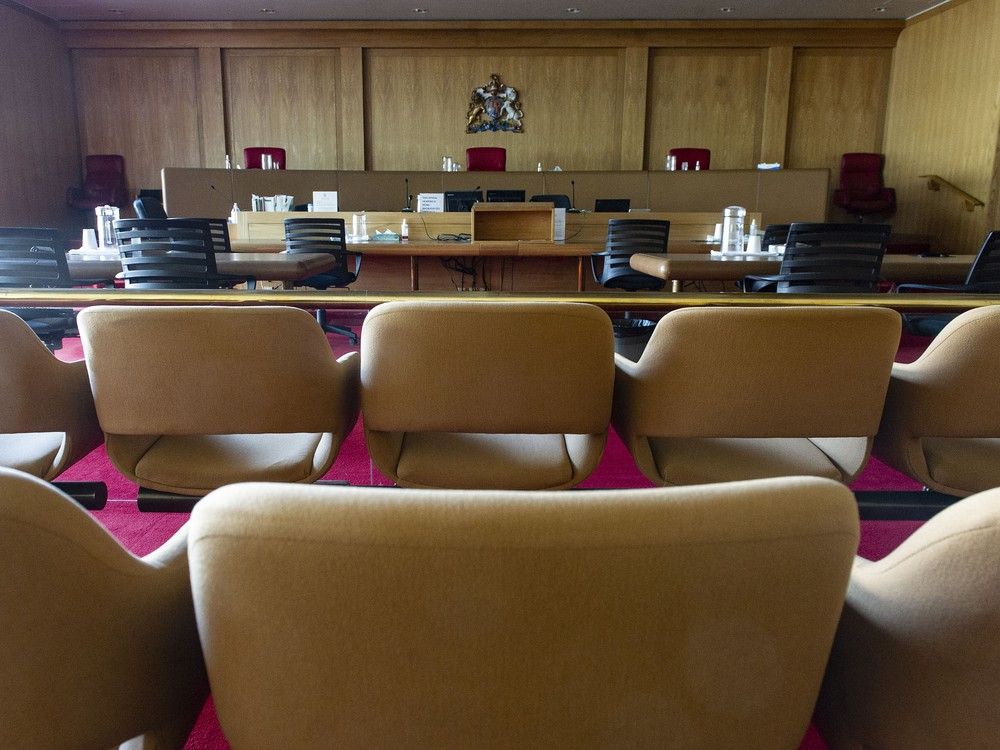
The Vancouver Island owner of a small farm has been ordered by a B.C. Supreme Court judge to shut down non-farm businesses and evict tenants, even though she said they were both part of agri-businesses on the land.
The District of Saanich was granted the court order telling land owner Nancy Kinney to evict individuals living in RVs and other vehicles in a covered horse-riding ring and to close a metal shop called Metal Magnate Art Ltd. that operated on her seven hectare parcel. The property on Old East Road is zoned A-1 Rural.
The land had 11 structures, including a house, the ring, a washhouse with toilet, shower, washer and dryer, storage buildings, the metal shop and a woodworking shop, both unlicensed and unpermitted, and two garages, according to the judgment by Justice Kevin Loo.
The vehicles included trailers, cars, trucks and the recreational vehicles, all used as residences, and the house included two secondary suites, contrary to bylaws, it said.
Kinney’s farm is in the province’s Agricultural Land Reserve and she argued her uses were allowed under its rules. However, Loo disagreed, saying business uses under its regulations must also be related to farming.
Bylaw officers showed court evidence that included online ads for the sale of patio furniture with a photo that matched a “tarped off area containing a large amount of patio furniture,” and an online ad advertising “indoor parking” for boats, trailers and vehicles, next to a photo of the covered ring.
Saanich bylaws permit only agriculture, single family dwelling, boarding, accessory produce sales and accessory buildings and structures, none of which fit what the officer saw, according to the judgment.
“It is clear the property is being used for business purposes not related to farming,” wrote Justice Kevin Loo after a two-day court hearing in Victoria in April.
Kinney told the court in a response to the petition that the property had 10 RV sites connected to septic, water and electricity in the ring for tourists, farm workers and shareholders of the company that leases the property from her.
The bylaw officer said he found clothing, personal effects and food in refrigerators, showing they were being used for lodging or accommodation, which is prohibited under the bylaws, Loo wrote.
Kinney also said in her response that some of the RVs are used for agri-tourists and the farm operation includes beekeeping, industrial hemp and lavender growing, vermiculture, foraging, land clearing, firewood and lumber production, raising of sheep, pigs, goats and chickens, and agri-tourism.
Her response also said those staying on the RV sites have few or no other options for accommodations in the city because of lack of affordable housing and they were happy to have a home. Loo said he took that as her acknowledgment that at least some tenants live there full-time.
The bylaws state that farmland can be used for agri-tourism, provided the public are invited to the activity and there are no permanent facilities connected to it, the judgment said.
Agri-tourism activities include farm heritage displays, educational tours or demos, sleigh or tractor rides, livestock shows and drives, petting zoos, harvest festivals and corn mazes, it said.
The main house was divided into three separate living units and they appeared lived in to an inspector, but only one secondary suite in addition to the main lodging is allowed, Loo wrote.
Saanich said several buildings don’t conform to building codes, but Loo found the evidence of that insufficient and no order was granted for alleged violations.
Loo ordered the granting of the declaration that Kinney had contravened the bylaws by allowing the RVs, non-farm businesses and extra secondary suite on the property and granted permanent injunctions against them.
The judgment was granted this week and Loo gave the owner until the end of July to comply, to allow the tenants time to find other accommodation, he said.